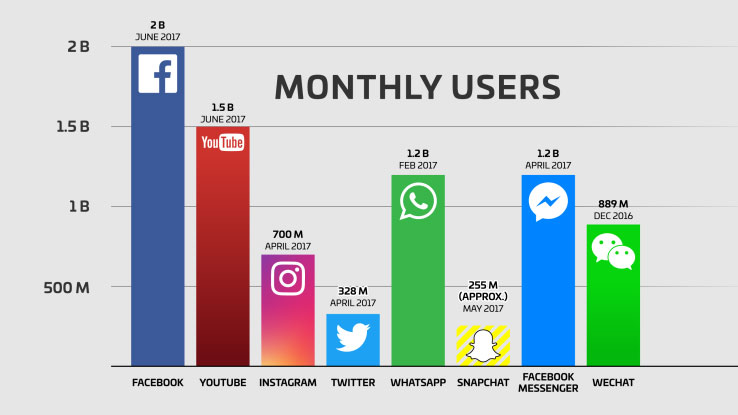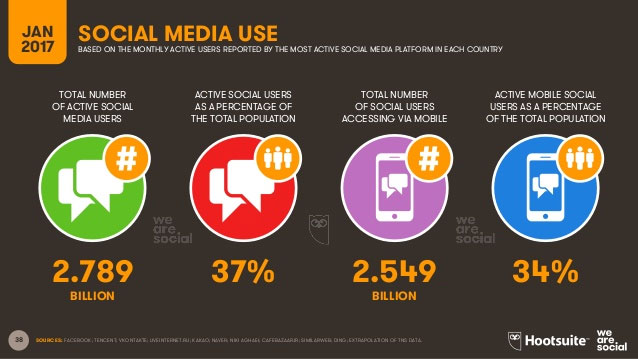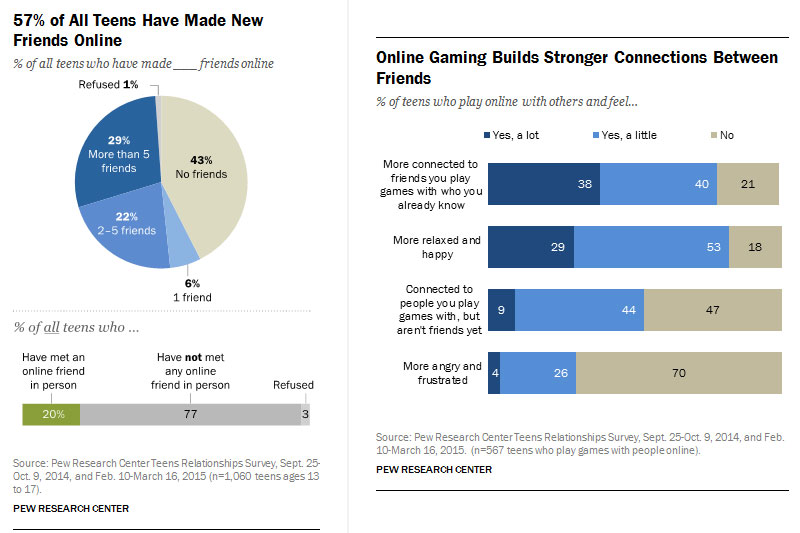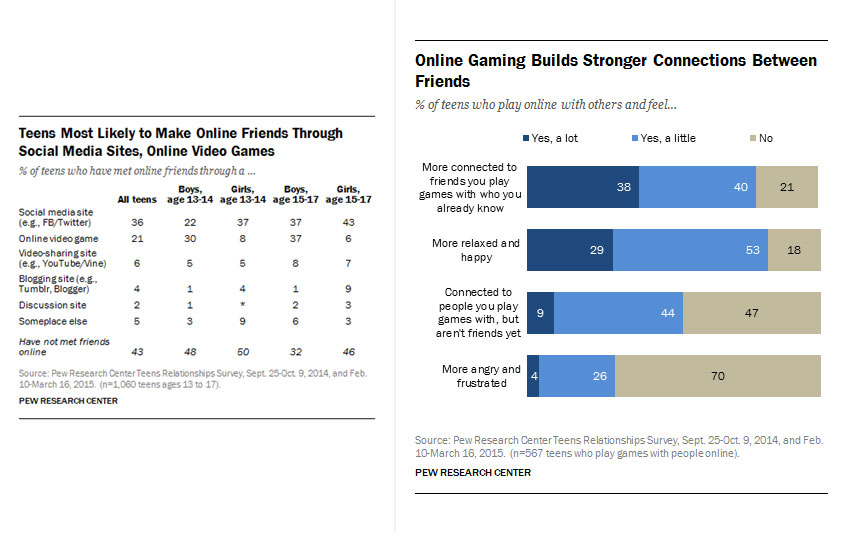
Photo Credit: iStock.com/Artist's Rawpixel
Relationships along with the social lives of people, have evolved a lot with time. A large contributor of this change is the creation of social media, especially MySpace and later Facebook.
This does not mean that traditional friendships no longer exist, but it does mean that online friends have also become a large part of our social circle, just see the monthly active users’ statistics below:

Source: Tech Crunch
Another way to put this is in the words of a blogger, Daniel Russell, who’s quoted to have said, “We don’t speak anymore. But we’re ‘talking’ more than ever”.
The ‘talking’ in this scenario is done through social media; which is not restricted to just one country or region, but it has the whole world population encased.

Source: We Are Social
One would think that social media being the preferred means of communications, that holds our social life together, would be well-liked, but it isn’t so. It has had its fair share of controversies.
One such major issue with social media is that it has nearly reduced our privacy next to nada. Whether is the intelligence agencies tracking and recording our every move, or stalkers gaining pertinent details about our life, or even due to our own foolish habits of oversharing; privacy has become a myth. The most recent example of this is the Snap Map, which lets you view the location of your Snapchat friends, who are nearby. This has raised much concern amongst parents whose children are now vulnerable to kidnappings and attacks, as any stranger (online friend) added on their child’s Snapchat can now easily track them.
Another common grievance against social media is that it endangers a person, especially teenagers. Teenagers are the most likely to form friendships online and this is what puts them most at risk of online harassment or worse.

Source: Pew Research Center
While most online friendships are usually formed between people who have some link or mutual friends, we all have, at least once in our life, added someone we don’t know to our circle. We won’t elaborate on this, to avoid sparking a debate on Friendship, Strangers and Safety in Online Social Networks. However, we will provide two current examples as to why this practice is dangerous, and why our parents always warned us ‘never to speak to strangers’.
Let’s start with something that still hasn’t garnered enough media hype… A child psychologist’s warning to parents’ of teens that Spotafriend could be ‘online playground’ for pedophiles. The Spotafriend app connects random people, allowing them to make new friends; but what’s alarming about this is that, despite it having a set age limit, many adults have been able to pass the verification process. Thus leaving the teens vulnerable to the clutches of pedophiles and perverts.
Now coming down to the more serious stuff; we’re sure you all would have heard about the Blue Whale Challenge. If not, let us give you a short briefing on it, the Blue Whale Challenge is an online game which originated in Russia, and is supposedly ‘cleansing society’ of ‘biological waste’.
The challenge spans over a 50 day period, where the player has to complete all 50 tasks, which involve self-harm and other such acts, the videos of which have to be sent to the administrator. The players are manipulated, blackmailed and even threatened into completing the tasks, the last task being suicide. Hundreds of young people across different countries have fallen prey to this vicious game leading to suicide, and many still are.
Yet, before you take out the pitch forks and barge through the offices of Facebook and Twitter, or even boycott them, there is one key fact you should keep in mind – social media is not the only means through which online friendships are forged. Online gaming and chat apps are also to blame.

Source: Pew Research Center
Nonetheless, making friends online is not all bad, at least according to some people. According to a study conducted by McAfee, ‘a third of teens feel more accepted online than in real life’. Here are some tweets from Huffington Post’s article, ‘People Are Sharing the Beautiful Impact Online Friendships Have Had on Their Lives’, to prove this.
There was a whole ass Twitter table at my wedding supporting me, and it was lit AF. Don’t tell me internet friendships are not real.
— AGirlHasNoPresident (@kamtheleo) July 13, 2017
I’ve had internet friends intervene/provide security in crises; and Ive done the same.
These friendships are as real as flesh and bone.
— Ladypolitik (@Ladypolitik) July 13, 2017
Have found friendship & support. Met people with shared interests. Some even live in the same town. Wouldn’t have met them IRL w/o Twitter.
— Nyasha Junior (@NyashaJunior) July 13, 2017
Another such amazing story is of two internet friends, Nikole Tower and Kaitz Haynes, who flew across globe to spend time with each other. And when talking about having real friendships with online friends, we couldn’t possibly leave out Ben Pasternak and Isiah Turner, the co-creators of Monkey. These two met on an online hackers’ forum, when Ben was still living in Sydney and Isiah in Maryland, and the rest is history. You can read their story here.
Finally, after exploring both sides of the story, regarding online friendships, we have come to a conclusion; for better or for worse, online friendships are a part of every social media user’s life. Whether you became friends due to shared interests like being part of the same fandom, or because of mutual friends, or even because of loneliness, online friends do have a special place in your life, just be careful when deciding who to befriend.
Kelvin Stiles is a tech enthusiast and works as a marketing consultant at SurveyCrest – FREE online survey software and publishing tools for academic and business use. He is also an avid blogger and a comic book fanatic.